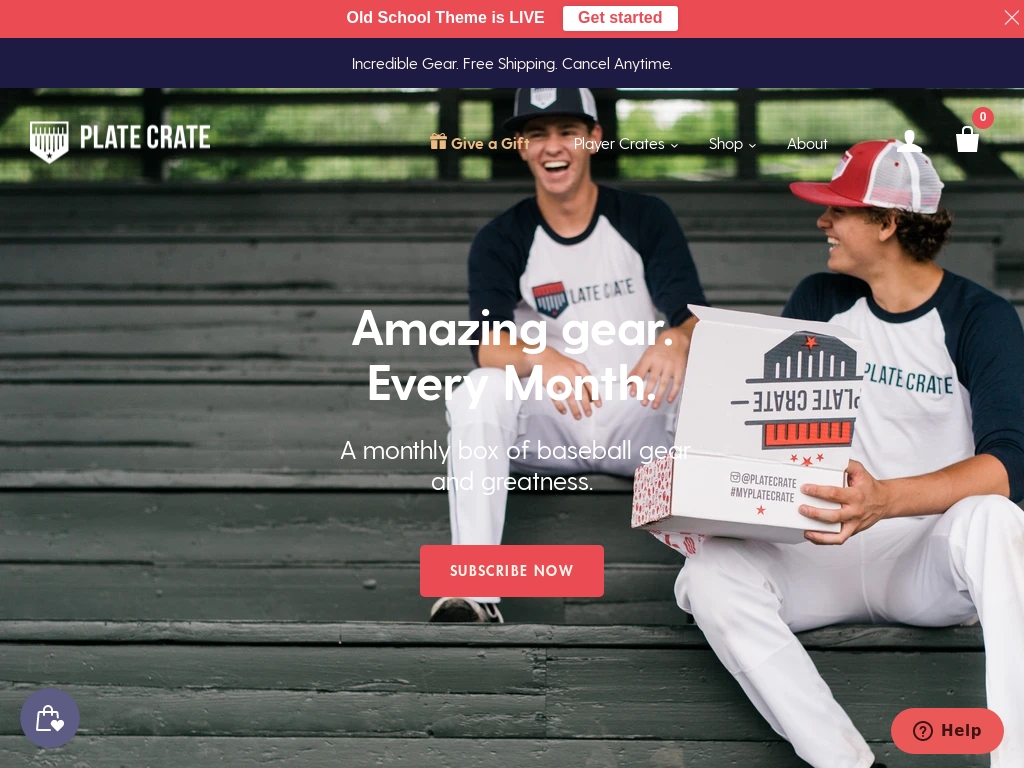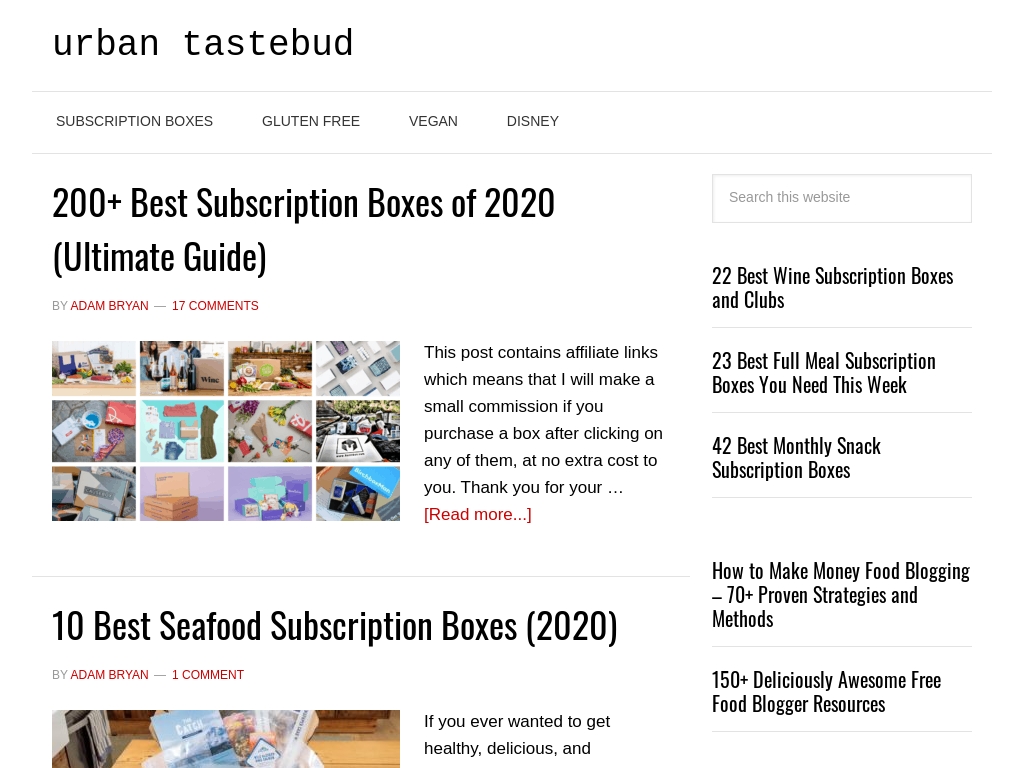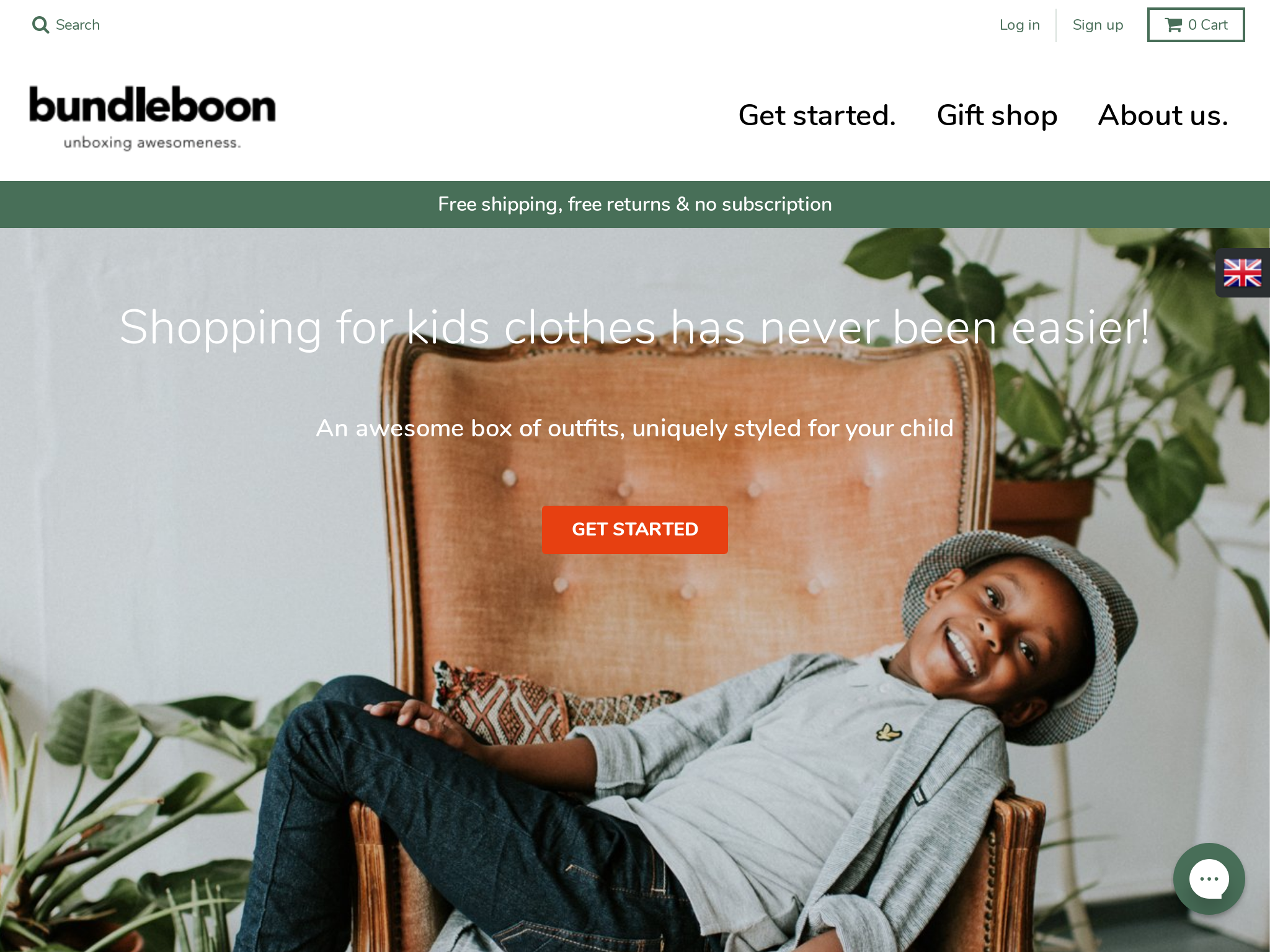
13 Subscription Box Business Success Stories [2024]
Subscription box businesses offer customers a niche set of products on a monthly basis.
They're in high demand as they add value to customer service, offer exclusive products and can be highly profitable.
To start a subscription box business, understand your niche market, provide quality products, perfect your box design, build a good relationship with fulfillment companies, and market your service.
In this list, you'll find real-world subscription box business success stories and very profitable examples of starting a subscription box business that makes money.
1. PenaltyBox Sports ($4.8M/year)
Drew Laine, Founder and CEO of PenaltyBox Sports, came up with the idea for his business while living in his in-law's basement. With no infrastructure or logistics, he decided to start a subscription box company for ice hockey players just two days before Black Friday. Despite the challenges, the idea took off and now the company has a thriving community of 45,000 passionate hockey parents, players, and fans.
How much money it makes: $4.8M/year
How much did it cost to start: $15K
How many people on the team: 8

A subscription box business for ice hockey players turned into a thriving e-commerce and sporting goods manufacturer that generated $275k in a month due to leveraging Facebook groups and community building.
2. Cannabox ($4.2M/year)
Michael Berk came up with the idea for Cannabox when he saw a gap in the market for a subscription box for cannabis accessories. As a daily cannabis user, he wanted a convenient solution to purchasing the items he needed. With an initial investment of $1,000, Berk launched Cannabox in 2013 and has since grown it into a successful business with an MRR of $350,000 and 11,000 subscribers.
How much money it makes: $4.2M/year
How many people on the team: 3

Learn how Michael Berk founded and grew Cannabox, a monthly cannabis subscription box, to have an MRR of $350,000 and 11,000 subscribers, by being a pioneer in the industry, hiring the right people, staying humble, and using SEO, email marketing, and social media.
3. Plate Crate ($3.9M/year)
Josh, the founder of Plate Crate, came up with the idea for his business while playing independent baseball and struggling financially during the offseason. After realizing there were no subscription boxes for baseball, he decided to start his own and launched Plate Crate in 2015. Since then, the business has grown immensely, with over $300K in monthly revenue and a successful expansion into Soccer Crate.
How much money it makes: $3.9M/year
How much did it cost to start: $1.5K
How many people on the team: 3

Plate Crate is a monthly subscription box for baseball enthusiasts, which started as a side hustle by the founder with just $800, and now generates over $300k of monthly revenue after six years of consistent growth.
4. Bambox ($720K/year)
Charles Carette, CEO & Co-founder of Bambox, came up with the idea for his business while working at a third-party logistics provider in Argentina. Seeing the opportunity to make the lives of parents easier, Charles and his co-founders designed a monthly subscription-based ecommerce for baby essentials combined with a virtual assistant to guide new parents. Despite facing challenges in a country where ecommerce is not widely trusted, Bambox has grown to ship over 1,100 boxes per month and has an MRR of $60,000, with a projected ARR of $750,000 for 2019.
How much money it makes: $720K/year
How much did it cost to start: $100
How many people on the team: 7
Argentinian startup Bambox has grown its monthly recurring revenue to $60,000 and ships more than 1,100 boxes of baby essentials a month, a figure expected to help it achieve an annual recurring revenue of about $750,000 in 2019, after launching its first subscription service in July 2017.
5. Urban Tastebud ($612K/year)
Bryan discovered subscription boxes while working on a gluten-free menu blog. His article about the best gluten-free subscription boxes became successful, which led him to focus on niche-specific subscription boxes.
How much money it makes: $612K/year
How much did it cost to start: $210
How many people on the team: 0

Urban Tastebud is a profitable affiliate marketing blog specializing on subscription box reviews that now draws in $51,000 a month; the founder started by writing quick easy-to-read list articles and has remained profitable for 9 years by his consistency while focusing on growing his content and using social media platforms such as TikTok and Pinterest to increase traffic.
6. Bundleboon ($420K/year)
Nelli Jeloudar, the founder of Bundleboon, came up with the idea for her curated shopping service for kidswear after seeing a demand for a similar service from her friends with children. She launched the business as a side hustle and quickly received 300 pre-orders, generating close to €45,000 in revenue with only €2,000 spent on startup costs. She later partnered with a retail partner to keep inventory risk low and focused on validating the concept before scaling.
How much money it makes: $420K/year
How many people on the team: 5

Bundleboon is a kidswear shopping service where parents complete a style quiz and receive two personalized outfits for their child, and only pay for the items they keep, generating €45k in revenue with only €2k spent on startup costs in the first 2 months, with a goal of becoming a tech company with a styling algorithm and automating the styling process.
7. Southern Cigar Co ($240K/year)
Michael Arciola III, founder of Southern Cigar Co, came up with the idea for his business while brainstorming business types that wouldn't require a large time commitment or initial investment. After considering subscription boxes, he decided on cigars as the consumable product to sell. Despite a slow start with only 3 customers in the first month, Southern Cigar Co has grown to generate ~$250k in revenue per year with a 20% year-over-year growth rate.
How much money it makes: $240K/year
How many people on the team: 0
Southern Cigar Co. is a cigar subscription box business founded by Michael Arciola III while he was a student at Florida State University, currently bringing in $250k a year and growing at 20% year over year.
8. Mouse Book Club ($120K/year)
David Dewane, the co-founder and president of the Mouse Book Club, came up with the idea while sitting on a bus and noticing everyone on their phones. He realized that people are constantly reading on their phones, but often don't remember what they read. This led him to create phone-sized physical books as an alternative, mailing over 40,000 books to 60+ countries and generating $170,000 in sales in the first two years.
How much money it makes: $120K/year
How many people on the team: 0

The Mouse Book Club is a start-up that mails physical, pocket-sized books to help readers disconnect from their digital devices, with over $170k in sales and 40,000 books sent to 60+ countries in the first two years.
9. EatTiamo ($120K/year)
Nicholas Figoli and his business partner Francesco Pelosi came up with the idea for EatTiamo while they were living abroad in Paris and missing the taste of authentic Italian cuisine. They noticed the lack of affordable and easily accessible Italian products in the market, especially in the US where the demand for Italian food is high. This led them to launch EatTiamo, the first subscription food box service that brings the best of Italian food directly to American families.
How much money it makes: $120K/year
How many people on the team: 5

Italian food subscription box service, EatTiamo, delivers monthly boxes of carefully selected Italian delicacies to 300 American families across the US, with the aim of reaching a break-even point of 1,000 boxes per month by 2020.
10. Candy Japan ($78K/year)
After moving to Japan and discovering the diverse and unique candies available, Bemmu Sepponen came up with the idea for Candy Japan. With flavors and varieties that are hard to find outside of Japan, Bemmu decided to start a subscription service that would send surprise boxes of Japanese candy to people all around the world. Since launching in 2011, Candy Japan has shipped over $1 million worth of candy and has paid Bemmu's living expenses in Japan for 7 years.
How much money it makes: $78K/year
How many people on the team: 0

This case study follows Bemmu Sepponen and his business Candy Japan, a service that has shipped over $1M worth of Japanese candy to people all over the world and has paid Bemmu's living expenses in Japan for seven years, however, the company has seen a decline in subscribers due to changes in the industry and in costs.
11. Lit League ($36K/year)
Christina, one of the three founders of Lit League, came up with the idea after starting a book club with her daughter and seeing the positive impact it had on her and other kids. With the help of co-founder Lauren, who had experience running book clubs, they created Lit League to provide parents with the tools to run their own book clubs at home and foster a love of reading in children.
How much money it makes: $36K/year
How many people on the team: 0

Lit League is a startup that creates book-themed activity boxes for kids ages 3-12, offering a monthly subscription or individual box options; the company has tripled its growth in one year, becoming an approved materials vendor for 11 different charter schools in two states.
12. Comic Crate ($24K/year)
Pam and Gene Farley, owners of Comic Crate, came up with the idea after seeing how comic books helped their kids learn to read and love reading. They realized that busy parents didn't have the time to visit a comic book store, so they created a subscription box where parents could choose the rating of the comics received, making it easier for kids to have access to appropriate and engaging content.
How much money it makes: $24K/year
How much did it cost to start: $100
How many people on the team: 0

Comic Crate is a curated comic subscription box with a unique selling point where the buyer gets to choose the rating of their comics received, grown from a $100 startup to an average of $1,000 in revenue per month in just 18 months.
13. Vowed Box Co. ($4.8K/year)
Lindsay Scholz came up with the idea for Vowed Box Co. while planning her own wedding and struggling to find non-traditional gifts for herself and her bridesmaids. After testing the market with an Instagram account and receiving overwhelming interest, she launched the business with an initial investment of $2,000 and has since sold five boxes in its first week. Social media, email marketing, and SEO have been instrumental in attracting and retaining customers for Vowed Box Co.
How much money it makes: $4.8K/year
How many people on the team: 0

Vowed Box Co. is a line of curated, quirky gift boxes with non-traditional brides in mind, offering four different products that have helped the business become profitable most months since its launch in 2018, with a monthly income of roughly $600.

Download the report and join our email newsletter packed with business ideas and money-making opportunities, backed by real-life case studies.

Download the report and join our email newsletter packed with business ideas and money-making opportunities, backed by real-life case studies.

Download the report and join our email newsletter packed with business ideas and money-making opportunities, backed by real-life case studies.

Download the report and join our email newsletter packed with business ideas and money-making opportunities, backed by real-life case studies.

Download the report and join our email newsletter packed with business ideas and money-making opportunities, backed by real-life case studies.

Download the report and join our email newsletter packed with business ideas and money-making opportunities, backed by real-life case studies.

Download the report and join our email newsletter packed with business ideas and money-making opportunities, backed by real-life case studies.

Download the report and join our email newsletter packed with business ideas and money-making opportunities, backed by real-life case studies.





